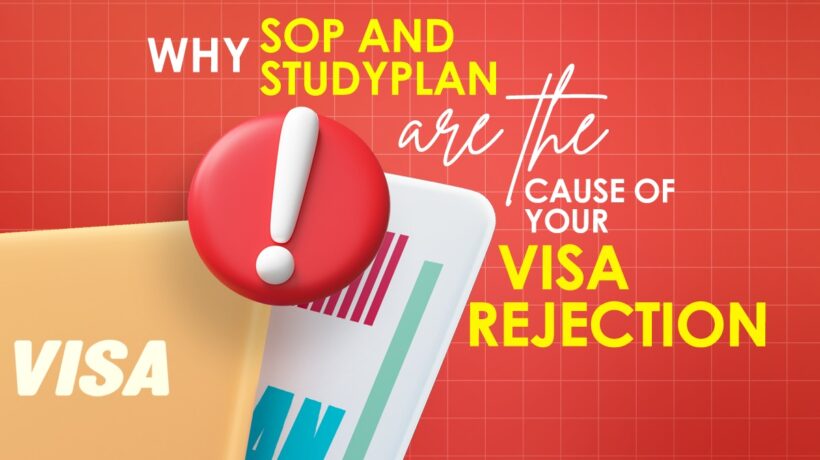Embassies don’t just hand out student visas like candy.
They want to see if you’re:
- A genuine student
- With a clear purpose
- Who will return after graduation
And guess what?
Your SOP and Study Plan are the first things that prove that!
These documents aren’t just formalities. For U.S. embassies and consulates, they’re critical tools to assess your intent, preparation, and credibility as an international student.
If your SOP and Study Plan fail to convince the visa officer that you’re a genuine student with a clear plan, your visa could be denied—even if your academics and finances are strong.
Let’s break down where most students go wrong.
1. Lack of Structure or Clarity
A confusing, generic, or vague SOP is one of the most common reasons for rejection.
If your statement feels like a list of disconnected thoughts, the officer won’t be able to understand your academic vision—or trust that you have one.
What to do instead:
Stick to a clear structure:
- Introduction and academic background
- Why this course?
- Why the USA?
- Why this university?
- Career plans after graduation
2. No Clear Link Between Study and Career
Visa officers expect to see a logical connection between your past education, the course you’re pursuing in the U.S., and your future goals. If that link is missing, your SOP may seem like an excuse to enter the country—not a genuine academic plan.
Tip: Be specific. Talk about roles you want to pursue, industries you’re interested in, or how U.S. education fits into the job market back home.
3. Weak Justification for Choosing the U.S. and Your University
Saying “the USA has good education” isn’t enough. The officer needs to know why the U.S. is the right fit for you, and why you chose a particular university over others.
Tip: Mention course content, faculty expertise, research opportunities, or specific resources that are not available in your home country.
4. Unexplained Study Gaps or Career Shifts
Did you take time off? Changing your field of study? That’s okay—if you explain it well. Ignoring gaps or making abrupt transitions without context raises red flags.
Tip: Always provide a reason. Whether it’s personal, financial, or academic—show how you’ve grown from the experience.
5. Overuse of Templates or AI-Generated Text
Officers review hundreds of SOPs weekly. They can instantly spot copy-paste templates, overly formal language, or content that sounds robotic.
Tip: Use your authentic voice. Don’t try to sound like someone else or over-polish it. Be honest and natural.
6. No Mention of Financial Preparedness
Even if you submit financial documents, your study plan should briefly show awareness of your financial setup. This shows responsibility and planning.
Tip: Clearly mention your sponsor, whether it’s family, a loan, or a scholarship. Indicate that you’re fully prepared for tuition and living costs in the U.S.
7. Failure to Show Intent to Return
The U.S. visa system is strict about non-immigrant intent. If your SOP sounds like you’re planning to settle permanently after studies, your visa may be denied.
Tip: Highlight your future plans in your home country. Whether it’s joining a family business, working in a specific sector, or starting a venture—make it clear.
Your SOP & Study Plan aren’t just paperwork — they are your voice to the visa officer. Done right, they can help you stand out. Done poorly, they can cost you your dream.
Before submitting, ask yourself:
- Does this SOP sound like me?
- Is it clear why I’m studying in the U.S.?
- Will the officer believe I’m serious about my academic goals?
In case you need help crafting your SOP or Study Plan, don’t hesitate to contact us— We offer expert consultation tailored for U.S. student visa applicants.





